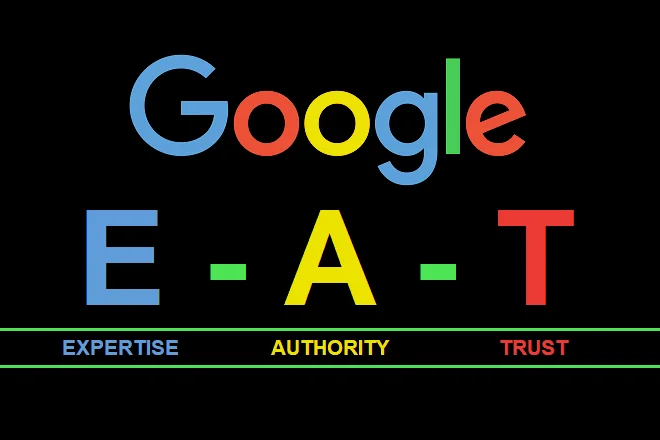Google E-A-T Update: Expertise, Authoritativeness, and Trustworthiness in Search

In the ever-evolving landscape of search engine optimization (SEO), Google continually updates its algorithms to ensure the delivery of high-quality, relevant, and trustworthy content to users. One such pivotal update that has garnered significant attention in the SEO community is the E-A-T update. Launched in August 2018, the E-A-T update emphasizes three core factors: Expertise, Authoritativeness, and Trustworthiness, collectively known as E-A-T. This update aims to improve the quality of search results by prioritizing content from authoritative sources and rewarding websites that demonstrate expertise, authority, and trustworthiness in their respective fields.
Understanding the E-A-T Update:
The E-A-T update is rooted in Google’s commitment to providing users with reliable and accurate information. It aims to combat the proliferation of low-quality, misleading, and potentially harmful content that may lack credibility or come from untrustworthy sources. By emphasizing E-A-T, Google seeks to elevate content that is created and maintained by experts, institutions, and organizations with a proven track record of expertise, authority, and trustworthiness in their respective fields.
The Impact of the E-A-T Update on Search Engine Results:
Since its introduction in August 2018, the E-A-T update has had a profound impact on the SEO landscape, shifting the focus from quantity to quality. With E-A-T, Google aims to:
- Prioritize Content from Authoritative Sources: Websites that are recognized as authorities in their field and have established a strong reputation for expertise and trustworthiness are more likely to rank higher in search results.
- Combat Misinformation and Low-Quality Content: The E-A-T update helps to filter out content that lacks credibility, is misleading, or potentially harmful, thereby enhancing the overall quality and reliability of search results.
- Promote Transparency and Accountability: Websites are encouraged to be transparent about their expertise, credentials, and affiliations, providing users with clear and accurate information to make informed decisions.
Adapting On-Page SEO Strategies:
In the era of the E-A-T update, traditional on-page SEO tactics centered around keyword optimization and technical factors are no longer sufficient. Businesses must adapt their strategies to align with the principles of E-A-T. This involves:
- Showcasing Expertise and Credentials: Clearly demonstrate expertise by creating high-quality, informative, and well-researched content that showcases the author’s credentials, qualifications, and experience in the field.
- Building Authoritative and Trustworthy Content: Prioritize creating authoritative and trustworthy content by sourcing information from reputable and credible sources, providing references, and maintaining a high level of accuracy and integrity.
- Enhancing User Experience (UX) and Credibility: Ensure that the website offers a seamless and intuitive browsing experience, with clear navigation, fast loading times, and a professional design that instills trust and credibility in the eyes of users.
Optimizing Off-Page SEO:
Off-page SEO strategies have also evolved in the era of the E-A-T update, with a renewed emphasis on building authority, trust, and relevance within the digital ecosystem. Key strategies include:
- Quality Backlinks from Authoritative Sources: Acquiring high-quality backlinks from recognized authorities and reputable websites within the industry to enhance credibility, visibility, and authority in search results.
- Social Signals and Brand Mentions: Leveraging social media and other online platforms to build brand awareness, engage with the target audience, and generate positive social signals and brand mentions that reflect expertise, authority, and trustworthiness.
- Online Reputation Management: Monitoring and managing online reviews, feedback, and mentions to maintain a positive online reputation, enhance trustworthiness, and reinforce the principles of E-A-T in the eyes of both users and search engines.
Conclusion:
The E-A-T update, launched by Google in August 2018, represents a significant advancement in Google’s quest to deliver more reliable, accurate, and trustworthy search experiences. As businesses and SEO professionals navigate the landscape shaped by this update, understanding and adapting to its principles of expertise, authoritativeness, and trustworthiness is essential for maintaining visibility, relevance, and competitiveness in search results. By prioritizing E-A-T in content creation, on-page and off-page SEO strategies, businesses can harness the power of the E-A-T update to enhance their online presence, credibility, and trustworthiness in the digital age.


Leave a Reply